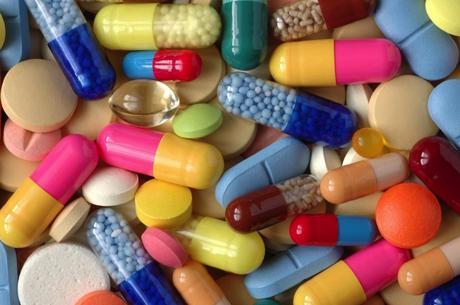The Ultimate Guide To Vegan!
Chapter 16. Going Vegan and Healthcare Drugs And Research: What’s The Connection?
So just when you’ve mastered eliminating animal products from your plate and ditched leather shoes, another important issue pops up.
Imagine getting a cold. Or getting severe period cramps. Or requiring a surgery or long-term treatment. What will you need? That’s right. Medical drugs.
And this is quite a problem for those who are really committed to going 100% vegan.
See, in most countries, medical drugs have to pass strictly regulated tests before they can be manufactured and prescribed.
As you’ve probably guessed by now, these tests are often routinely carried on non-human species – and it is absolutely required by law.
EXTREMELY IMPORTANT NOTICE!
Please, do not stop taking any medications prescribed by your doctor, even if there are no vegan alternatives available!
Therefore, if you need to look after yourself and take medications, you have to play by these rules.
In addition, many common medications contain animal ingredients, and sometimes vegan-friendly alternatives are not available. Don’t believe us?
 Medication and Veganism
Medication and Veganism
Check your medicines’ ingredients and see if you can spot any of the following ingredients:
Gelatin – an essential component of delivery systems in many capsulated medications.
Carmine – a dye made from crushed bugs, gives medicines red color.
Glycerin – commonly obtained from cow or pig fat, although you may be able to find medications made with plant-based glycerin (usually derived from seaweed)
Heparin – one of the most popular anticoagulant medications, derived from cows (lungs) and pigs (intestines)
Insulin – a large proportion of this essential diabetes management drug is made out of hog pancreas, although synthetic alternatives are getting more and more available
Lactose – this is a sugar found in mammal milk. Also watch out for this if you’re certain you have lactose intolerance.
Lanolin – this ingredient is derived from the oil glands of sheep. Ophthalmic drugs, some injectable medications and cosmetic products (creams, lip balms) may contain lanolin. Eye drops also commonly contain lanolin as it has antibacterial properties and may protect against dry eyes. Plant oil alternatives are available, so read the ingredient list closely.
Magnesium stearate – commonly used to prevent medications from sticking together, as well as from clinging to the equipment. Stearic acid, which is a component of the substance, which is a saturated fat found in cows, coconut oil, cocoa butter, and other sources. So as you can see from the list, this may or may not be animal-derived, but it’s definitely worth checking.
Premarin – made from horse urine, as the name kind of remotely suggests. This serves as estrogen, and there are many vegan alternatives available.
Vaccines – common vaccines, including the staple flu vaccine, contain animal byproducts or are manufactured with them. Animal components may include gelatin, chicken embryo, guinea pig embryo cells, and serums.
We do realize that this information is a bit out of context, so the question is – how big is the issue, exactly?
To illustrate the situation, consider this data: nearly 75% of the 100 most commonly prescribed drugs contain at least one of the following: magnesium stearate, lactose, or gelatin.
The most frustrating thing is, it’s not exactly easy to retrieve this information from the manufacturers – which is not surprising, considering they are not required to list it.
The researchers concluded that “it is likely that patients are unwittingly ingesting medications containing animal products with neither prescriber nor dispenser aware.”
This brings up a very important ethical question…
I want to be 100% vegan, but have to take medications – what do I do?
First of all, please don’t panic and don’t go to extremes.
Remember – your life is precious!
Besides, being vegan means avoiding using animals “as far as practicable and possible”.
Under no circumstances we would recommend to cease the treatment you need because of the information outlined above.
After all, looking after yourself and maintaining great health is very important if you wish to be a vegan advocate – which means you may find your self in a situation where no practical vegan alternative is available for the treatment you require.
So please, do not stop taking any medications prescribed by your doctor, even if there are no vegan alternatives available!
Realistically, we still live in a non-vegan world, and although many organizations are working hard to end the use of non-human animals in safety testing, it’s not going to happen overnight.
It doesn’t mean there absolutely nothing you can do, though! So it’s time to…
Come up with an action plan
Even though it’s unrealistic to expect that all your prescribed medications will have vegan-friendly alternatives, you may still be able to get away with more animal-friendly solutions than you’ve imagined.
Here’s what you need to do if going 100% vegan is your ultimate goal:
Talk to your doctor about your concerns and your vegan lifestyle.
If alternatives are available, chances are your doctor will be willing to look into this for you. Otherwise, it may be a good time to change a doctor…
Go to your pharmacy, you can try getting your medications from there, where the pharmacist may be able to prepare your medication without the ingredients that don’t suit your lifestyle
It’s always worth it to talk to your pharmacist after obtaining a prescription – they may recommend an alternative
You can try to contact the drug manufacturer directly and gather all the information
Don’t throw away the product information sheets, as sometimes they will have extensive information in regards to ingredients.
We will be following up on this subject in the future but in the meantime take a look on the internet, particularly these informative websites;
Physicians Committee For Responsible Medicine
We sincerely hope you found this material helpful!
And just a final reminder – please don’t stop taking any prescribed medications without checking with your doctor first.
Go back to Chapter 15 Go to Chapter 17

